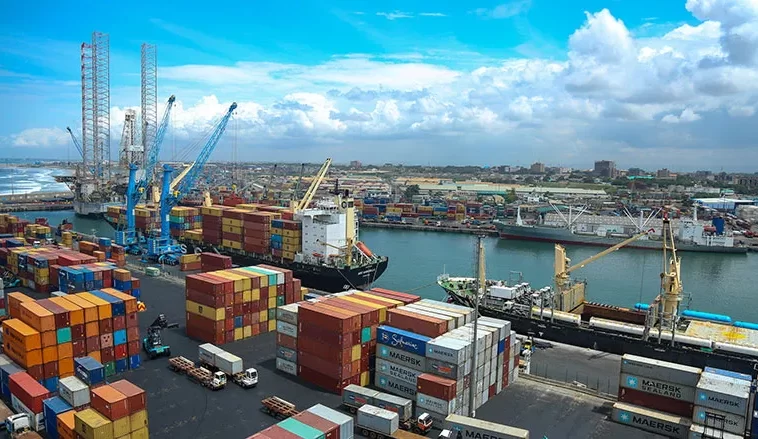In recent years, Africa has witnessed a remarkable shift in attitudes towards women’s leadership. Across the continent, women are increasingly breaking barriers, shattering stereotypes, and assuming positions of influence and authority in various sectors. This transformation reflects a growing recognition of women’s invaluable contributions to governance, business, academia, and civil society.
Despite progress in recent years, women in Africa continue to face significant barriers to leadership and decision-making roles. Deep-rooted gender norms, cultural biases, and structural inequalities often limit women’s access to education, economic opportunities, and political power. Discriminatory practices and patriarchal attitudes persist in many societies, perpetuating gender disparities and hindering women’s advancement in leadership positions.
Moreover, women in Africa frequently encounter systemic challenges such as limited access to resources, unequal pay, and lack of representation in key decision-making bodies. These barriers not only undermine women’s rights and dignity but also deprive societies of the diverse perspectives, talents, and expertise that women bring to leadership roles.
However, despite these challenges, African women are forging ahead, breaking barriers, and carving out paths to leadership through resilience, determination, and collective action.
Ellen Johnson Sirleaf (Liberia)
Ellen Johnson Sirleaf made history as Africa’s first female president when she was elected to lead Liberia in 2006. During her tenure, Sirleaf implemented significant reforms to rebuild Liberia’s war-torn economy, strengthen governance institutions, and promote gender equality. Her leadership earned her international acclaim, including the Nobel Peace Prize in 2011, for her efforts to promote peace and women’s rights in Africa.
Graça Machel (Mozambique)
Graça Machel is a prominent advocate for women’s rights and social justice in Africa. As the former First Lady of Mozambique and South Africa, Machel has been a tireless champion for women’s empowerment, education, and health. She founded the Graça Machel Trust, which works to advance the rights of women and children in Africa through advocacy, research, and capacity building.
Amina J. Mohammed (Nigeria)
Amina J. Mohammed is a Nigerian diplomat and politician who currently serves as the Deputy Secretary-General of the United Nations. Prior to her current role, Mohammed held various leadership positions in the Nigerian government, including Minister of Environment, where she spearheaded initiatives to address climate change, sustainable development, and women’s empowerment.
Winnie Byanyima (Uganda)
Winnie Byanyima is a Ugandan politician, diplomat, and women’s rights activist who currently serves as the Executive Director of UNAIDS, the Joint United Nations Programme on HIV/AIDS. Byanyima has dedicated her career to fighting poverty, inequality, and gender-based violence, advocating for the rights of marginalized communities and promoting inclusive development.
Leymah Gbowee (Liberia)
Leymah Gbowee is a Liberian peace activist and Nobel Laureate who played a pivotal role in ending the Second Liberian Civil War. Gbowee led a nonviolent women’s movement called the Women of Liberia Mass Action for Peace, which mobilized thousands of women to demand peace and reconciliation in Liberia. Her leadership and advocacy efforts contributed to the signing of the Accra Comprehensive Peace Agreement in 2003.
Phumzile Mlambo-Ngcuka (South Africa)
Phumzile Mlambo-Ngcuka is a South African politician and women’s rights advocate who served as the Executive Director of UN Women. Mlambo-Ngcuka has been a vocal champion for gender equality, economic empowerment, and ending violence against women. Under her leadership, UN Women has launched global initiatives to promote women’s leadership, political participation, and economic empowerment.
Fatoumata Jallow-Tambajang (The Gambia)
Fatoumata Jallow-Tambajang is a Gambian politician and women’s rights activist who played a key role in the democratic transition in The Gambia. As the Minister of Women’s Affairs, Jallow-Tambajang advocated for gender-sensitive policies and programs to promote women’s rights, economic empowerment, and political participation. She was instrumental in the election of Adama Barrow as President of The Gambia in 2016.
Stella Nyanzi (Uganda)
Stella Nyanzi is a Ugandan academic, feminist, and activist known for her fearless advocacy for women’s rights and social justice. Nyanzi gained international attention for her creative protests against government corruption, gender-based violence, and political repression. Despite facing harassment, intimidation, and imprisonment, Nyanzi continues to speak truth to power and inspire others to stand up for their rights.
Sahle-Work Zewde (Ethiopia)
Sahle-Work Zewde made history as Ethiopia’s first female president when she was elected in 2018. As a seasoned diplomat and former United Nations official, Zewde has been a trailblazer for women’s rights and gender equality in Africa. She has championed initiatives to promote women’s leadership, peacebuilding, and sustainable development at the national and international levels.
Chimamanda Ngozi Adichie (Nigeria)
Chimamanda Ngozi Adichie is a renowned Nigerian author, feminist, and cultural critic whose work has had a profound impact on shaping conversations about gender, identity, and power in Africa and beyond. Through her writing and activism, Adichie has challenged stereotypes, advocated for women’s rights, and inspired a new generation of African women to pursue their dreams and aspirations.
These examples represent just a fraction of the countless African women who are leading change, challenging the status quo, and making a difference in their communities and countries. Their stories serve as powerful reminders of the resilience, courage, and tenacity of African women in the face of adversity.
Africa’s journey towards women’s effective leadership is a testament to the transformative power of women’s voices, agency, and leadership. Despite their formidable challenges, African women are breaking barriers, driving progress, and shaping the continent’s future. By empowering women, promoting gender equality, and creating enabling environments for women’s leadership, Africa can unlock its full potential and build a more inclusive, equitable, and prosperous future for all.


